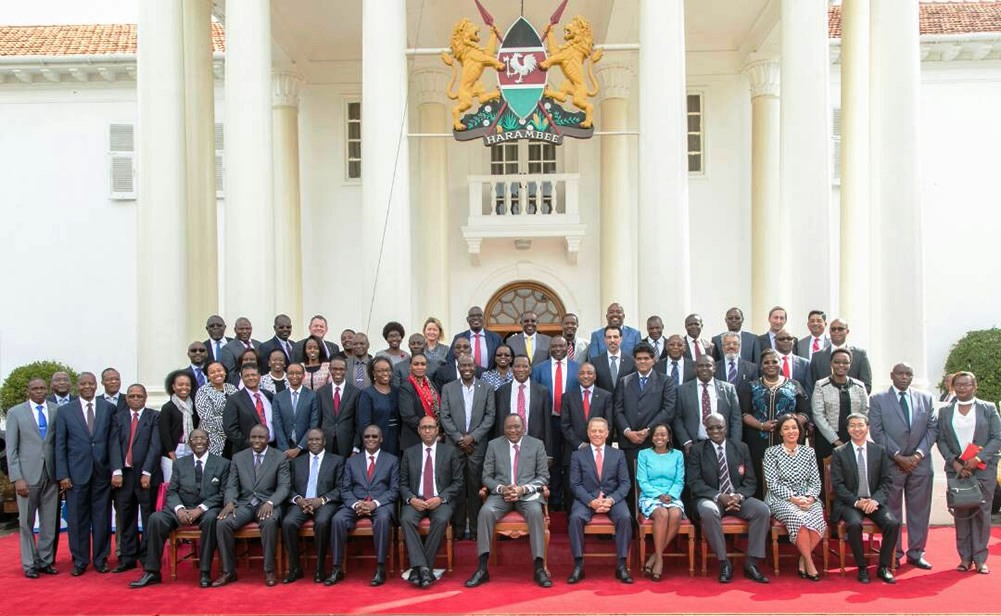Kindly Share>>
The Government of Kenya is keen to harness its good rapport with the private sector, particularly on bridging the existing Kenya’s housing deficit.
Speaking during the recently held 7th Presidential Round Table at State House, Nairobi, Kenya’s Deputy President William Ruto called for a collaborative approach between the Government and Kenya’s real estate players in helping to bridge the demand-supply gap in this sector.
At present, Kenya has an accumulated housing deficit of over 2 million units.To keep up with the demand, 244,000 housing units in different market segments are needed annually. Current production is less than 50,000 units.
The Deputy President threw a rhetorical challenge to the real estate players present at the forum, seeking to have them come up with a way on how Kenya can introduce a product in the region of Kshs1 million, which can be purchased on mortgage by citizens who are earning approximately Kshs20, 000 to about Kshs50, 000.
“We would want to benefit from your ideas as well so that we can do two things: number one, find a mechanism (on how) to do low cost housing for the urban poor and also (how we can be able to provide) affordable housing for the people whom we can put on mortgage,” said Hon. Ruto.
And the Deputy President’s suggestions quickly resonated with one of the leading real estate guru who was present at the Presidential Round Table forum. George Wachiuri, Optiven Group CEO believes that Kenya’s real estate firms, like the one that he captains, have the capacity to step in and offer the right solutions to the current housing deficit.
“It is true that Kenya has an urbanization rate of 4.4% with 61% of urban households living in slums. The good thing is that we, in the private sector, have the capacity to deliver on this area, through offering more affordable housing products to as many Kenyans, subsequently creating new jobs, deepening the financial sector and catalyzing the country’s overall economic growth both in the medium and long-term,” noted George Wachiuri, Optiven Group CEO.
Currently, Kenya has about 24, 000 mortgages against a population of 48 million and it could just be about time the country started thinking outside the box. And the real estate players have a key role to play at this level.
Wachiuri notes that Optiven is already doing this by providing value-added properties and offering easy to own options on all the products under his Nairobi based firm’s catalogue. He believes that Kenya is already at the threshold of adopting alternative building technology such as bricks, hollow blocks and expanded polystyrene technology. He notes that his company is all set to take these new opportunities to the next level, literally.
“Optiven real estate recently set up a huge factory, which is producing hollow blocks, road cabs, cabro and concrete poles. This is in preparation to providing our customers with low cost building materials. This will further help to reduce the massive housing deficit currently being experienced in Kenya,” says the CEO.
On his part, President Uhuru Kenyatta noted that his government is committed to continue facilitating the private sector for job and wealth creation. His Government has amplified its spending on infrastructure, a development that is further enhancing the real estate prospects in Kenya.
On her part, KEPSA CEO, Ms Carole Kariuki, underscored some of the accomplishments from the engagement between the private sector and the Kenyan Government through the various Public-Private Dialogue Platforms as envisaged in the National Business Agenda II. She emphasized on the importance of a synergetic relationship that the private sector has with the government in all progressive economies.
“The private sector drives the economy in terms of revenue generation for the government, job creation and private wealth creation and in turn needs facilitation and an enabling business environment as provided by the government. This relationship is always brokered by a strong partnership between the organizations that represent business and the leadership of government,” she noted.




